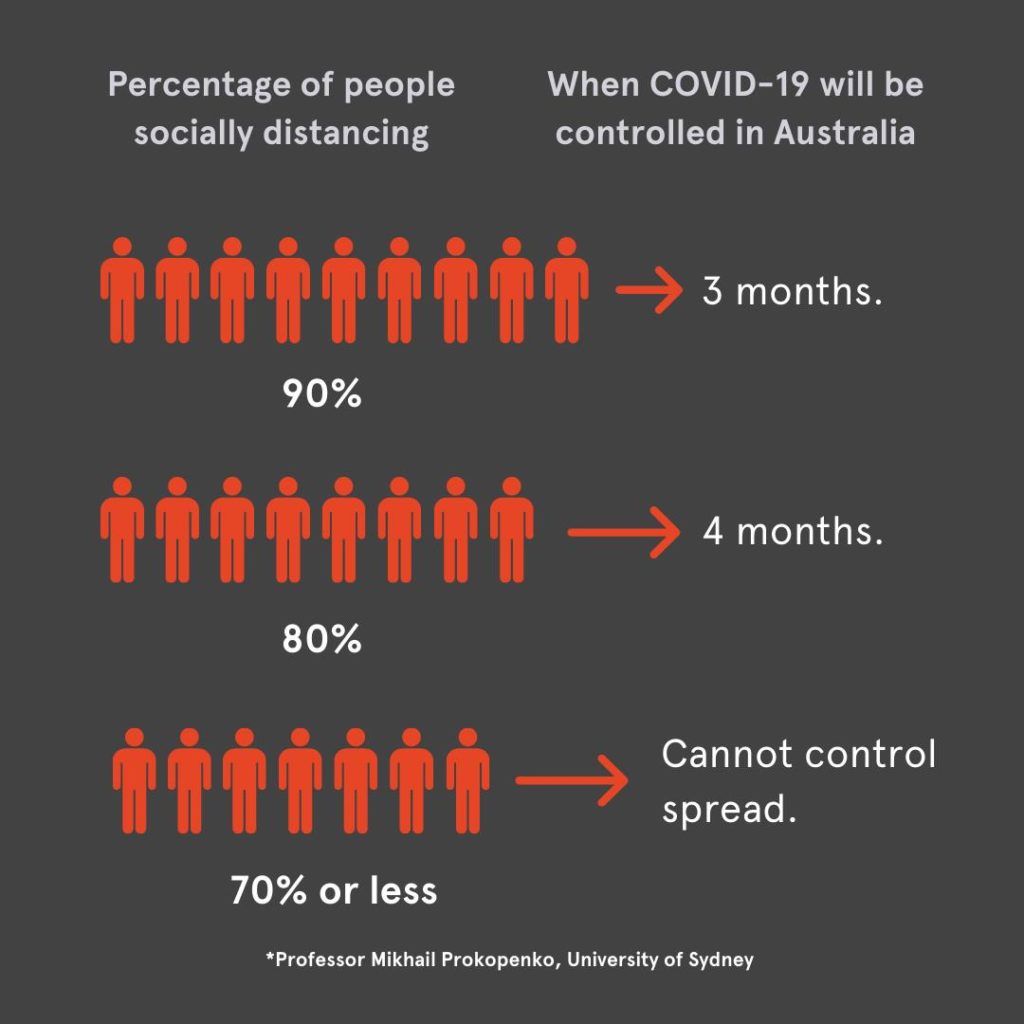
The efficacy of social distancing has been revealed in a University of Sydney data study, which suggests it must be adopted by at least 80% of the population to reduce the spread of COVID-19.
The study, from the Faculty of Engineering, reveals that by doing so we could expect to see a control of the spread of the COVID-19 pandemic in just over three months.
Led by Complex Systems academic and pandemic modelling expert, Professor Mikhail Prokopenko, the study also suggests that if 90% of the population complies with social distancing then the duration could be as short as 13-14 weeks; however, social distancing would be an unproductive measure if adopted by less than 70% of the population.
“There is a clear trade-off – stricter measures imposed earlier would reduce how long our lives are impacted by this disease. On the contrary, laxer protocols could mean a longer, more drawn-out and ineffective struggle against COVID-19,” Professor Mikhail Prokopenko said.

“There’s good reason for imposing tough measures early on. The longer we delay the peak, the more time our healthcare system has to prepare for it by accessing more resources such as ICU beds, ventilators, antivirals and trained health workers,” Professor Prokopenko said.
The research also found that for every day the stricter social distancing measures are delayed, society would need to endure several more days under a longer suppression policy.
In terms of school closures, the researchers found while they had the potential to compensate for 10% of a lack of social distancing compliance, they only delayed the peak of the pandemic by two weeks.
Also, school closures did not significantly reduce new cases for older adults, but slightly increased the fraction of new cases in children around the peak of the pandemic in Australia.








